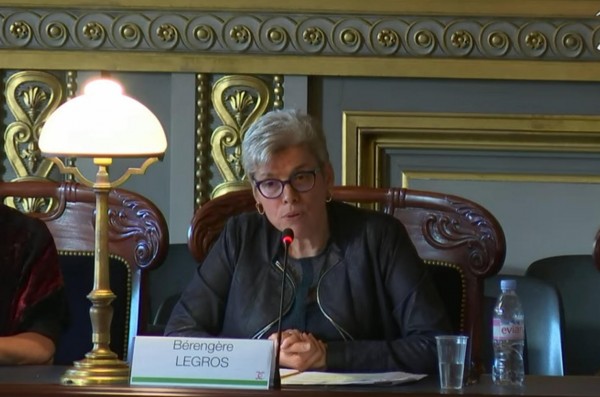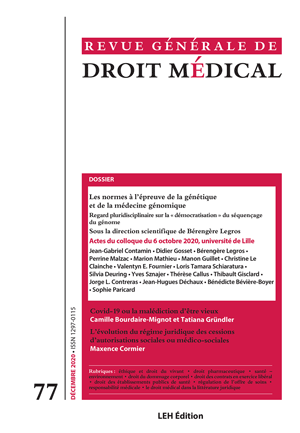Résumé
Le projet de loi relatif à la bioéthique réforme le dispositif d’examen postnatal à des fins médicales des caractéristiques génétiques en développant la régulation juridique de la génétique constitutionnelle et en introduisant celle de la génétique somatique. Il entérine la « démocratisation » de l’accès au séquençage du génome en élargissant le périmètre des informations à délivrer, les données additionnelles, dont le contour se révèle incertain.
La lettre du futur texte se révèle ambiguë, entretenant le terreau introduit dans la norme en 2004 par la procédure d’information de la parentèle aux fins d’un dépistage sélectif. Elle participe d’un changement de paradigme à venir de l’offre de soins : glissement par une politique « des petits pas » du diagnostic vers un dépistage de plus en plus large. Le projet de loi étoffe l’intérêt de la parentèle en élargissant tant son spectre que son accès aux données génétiques du patient.
La présentation du dispositif modifié par le projet de loi interpelle, d’une part, par son défaut de lisibilité lié aux termes médicaux et à certaines formulations alambiquées qui ne sont pas accessibles par le citoyen non averti et, d’autre part, par la dissémination des dispositions dans sept articles. Cette présentation éclatée du dispositif conduit le lecteur et les parlementaires, qui doivent l’adopter pour tenter de comprendre, à accepter de relever le défi du jeu de piste. Il n’est pas certain alors que l’ensemble de nos représentants aient pu prendre jusqu’à présent la mesure des enjeux, le faible taux d’amendement voté sur ces examens « non récréatifs » en est l’illustration. Ce choix interroge. Quid de la légitimité d’une norme qui sera opposable au titre de la loi mais qui n’est pas lisible par le citoyen ni même parfois par les praticiens qui doivent la mettre en oeuvre ? La future loi peut encore être rendue intelligible puisque le processus parlementaire n’est pas encore achevé, il doit reprendre en principe devant le Sénat au premier trimestre 2021.
Mots-clés
Caractéristiques génétiques – Constitutionnel – Démocratisation – Dépistage – Diagnostic – Données additionnelles – Données incidences – Données secondaires – Génome – Séquençage – Norme– Somatique – Procédure d’information de la parentèle
Abstract
The bioethics bill reformed the postnatal examination system for medical purposes of genetic characteristics by developing the legal regulation of constitutional genetics and by introducing that of somatic genetics. It endorses the «democratization» of access to genome sequencing by broadening the scope of the information to be delivered, the additional data, the outline of which turns out to be uncertain.
The letter of the future text is ambiguous, maintaining the breeding ground introduced into the standard in 2004 by the procedure of informing relatives for the purposes of selective screening. It is part of a future paradigm shift in healthcare provision: a shift through a policy of «small steps» from diagnosis to increasingly extensive screening. The bill enhances the interests of kinship by broadening both their spectrum and their access to patient genetic data.
The presentation of the device modified by the bill calls out, on the one hand, by its lack of readability linked to medical terms and to certain convoluted formulations which are not accessible to the uninformed citizen and, on the other hand, by the dissemination of the provisions in seven articles. This fragmented presentation of the device leads the reader and parliamentarians, who must adopt it in an attempt to understand, to accept the challenge of the treasure hunt. It is not certain that all of our representatives have so far been able to take stock of the stakes, the low rate of amendment voted on these “non-recreational” examinations is an illustration of this. This choice questions. What about
the legitimacy of a standard which will be enforceable under the law but which is not readable by the citizen or even sometimes by the practitioners who must implement it? The future law can still be made intelligible since the parliamentary process is not yet complete, it must resume before the Senate in the first quarter of 2021.
Keywords
Genetic characteristics – Constitutional – Democratization – Screening – Diagnosis – Additional data – Incidence data – Secondary data – Genome – Sequencing – Norm – Somatic – Procedure for informing relatives




